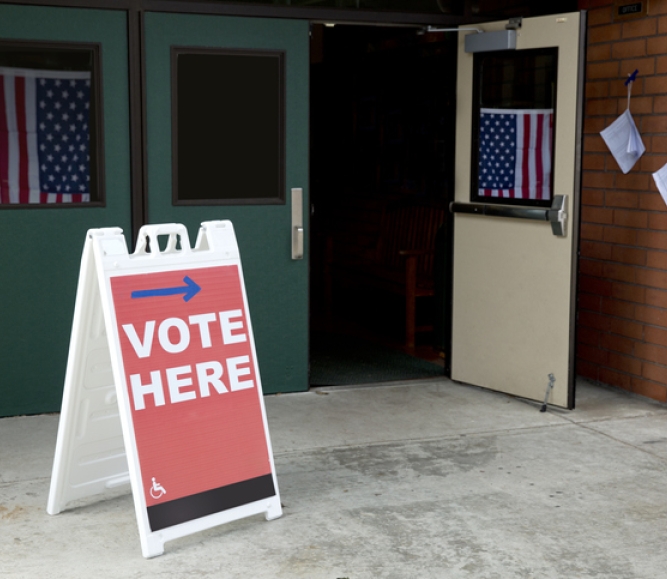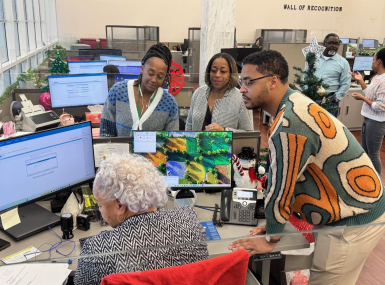Federal policy can strengthen election worker safety
Author

Paige Mellerio
Upcoming Events
Related News
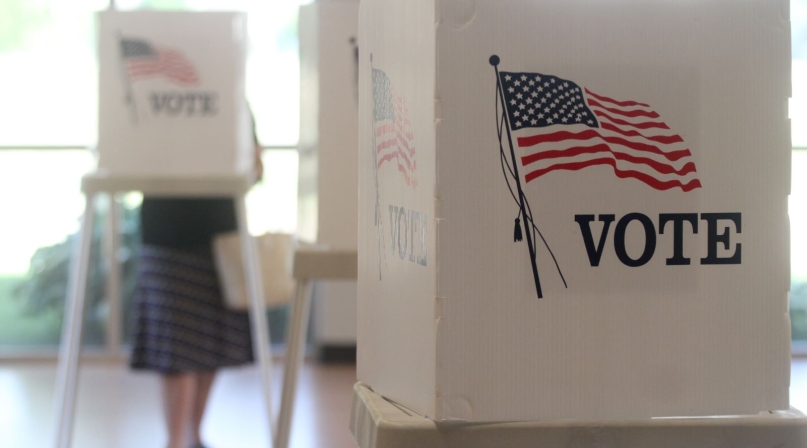
Key Takeaways
As we enter the 2024 election cycle, county election officials across the country are bracing themselves for what’s ahead. There’s a general sense of anxiety about what this year could bring and how typically mundane aspects of election administration could be distorted and misconstrued online.
There’s no denying that the persistent misinformation and conspiracy theories surrounding election administration have led to heightened tensions and distrust in public officials in communities across the country. In the most extreme cases, this has resulted in targeted threats and relentless harassment toward county election officials for simply doing the job they were elected or appointed to do.
Counties aren’t alone in this — state election officials receive their fair share of threats and harassment. State legislatures and election offices should take action to protect county election officials and to their credit, a handful have to some degree. In Arizona, California and Oregon, election officials are protected from “doxing,” searching for and publishing private or identifying information about a particular individual. In Colorado, Minnesota and New Hampshire, they are protected from intimidation, threats or other attempts to interfere in election administration.
The federal government has an obligation to protect county election officials too. After all, races for federal office take up most of the ballots counties are required to print (and pay for) each election cycle. This isn’t to say there hasn’t been progress toward protecting election officials at the federal level — there has. In 2021, the U.S. Department of Justice launched the Elections Threats Task Force to investigate and if appropriate, prosecute, reported incidents of threats against elections workers.
Additionally, in Fiscal Year (FY) 2023 the U.S. Department of Homeland Security required states to use 3% of their Homeland Security Grant Program allocation on election security activities. Congress also funded the State & Local Cybersecurity Grant Program, which can be used on election infrastructure, for the first time in FY 2023 and the USDPJ clarified that Edward Byrne Memorial Justice Assistance Grant (Byrne JAG Grant) funds can be used on election worker protection. (For more information about the grant, visit https://bja.ojp.gov/program/jag/overview.)
Protections for election workers should go beyond administrative action that can easily sunset or be reversed. Congress should work to protect election officials and invest in the individuals who dedicate their careers to upholding our democratic institutions. Congress could consider the following policies:
• Expanding existing protections for election workers including making it a crime to threaten, intimidate, harass or coerce election officials and prohibiting the dissemination or disclosure of certain personal information of election officials for the purposes of threatening and harassing election officials
• Authorize grants for local governments to recruit, train and retain high quality poll workers, increase physical security at polling places and election offices and to establish or expand grant programs to protect election officials’ personal information at their discretion to address the election workforce shortages that have resulted from the heightened tensions around elections
• Increase and annually fund Help America Vote Act grants to assist county election officials fund election administration activities and to ensure secure and accurate elections
• Promote intergovernmental collaboration and cooperation between federal, state and local law enforcement agencies and provide law enforcement agencies with resources to investigate reports of threats and harassment toward election officials
Protecting election officials shouldn’t be a partisan issue in Congress and at the county level, it’s not. At both the 2022 and 2023 NACo Annual Conferences, bipartisan election officials from across the country championed a policy resolution urging Congress to impose appropriate penalties for threatening, harassing and doxing county election officials.
As a result, NACo has endorsed the Election Worker Protection Act (S. 1318) led by Senate Rules Committee Chair Amy Klobuchar (D-Minn.) and Senate Judiciary Committee Chair Dick Durbin (D-Ill.). We encourage counties to urge their members of Congress to support this bill and other efforts to protect county election officials at the federal level.
Related News
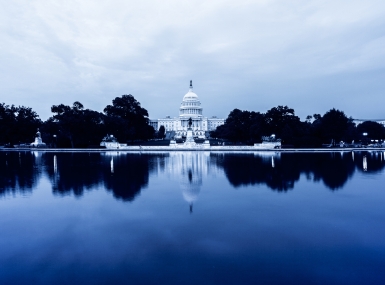
MEGA Act moves in House; NACo raises county concerns
On Feb. 10, the U.S. House Committee on Administration held a hearing to consider the Make Elections Great Again (MEGA) Act (H.R. 7300), which was introduced by Committee Chairman Rep. Bryan Steil (R-Wis).
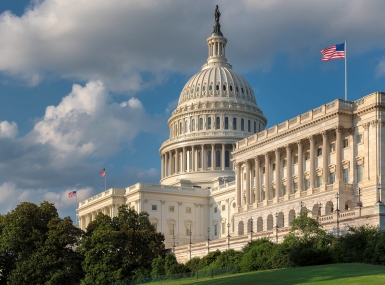
House passes SAVE Act; Major impacts on county election administration
Next week, the U.S. House of Representatives is slated to vote on the Safeguarding American Voter Eligibility (SAVE) Act (H.R. 22), making it the chamber’s second vote on a version of the legislation in less than a year.
Advocacy
U.S. Senators introduce legislation aiming to protect election workers
On September 22, a group of 17 Democratic Senators led by Chairwoman of the Senate Rules and Administration Committee Amy Klobuchar and Chair of the Senate Judiciary Committee Dick Durbin introduced the Election Worker Protection Act, which aims to enhance protections for election workers through providing grants to states and certain local governments.
